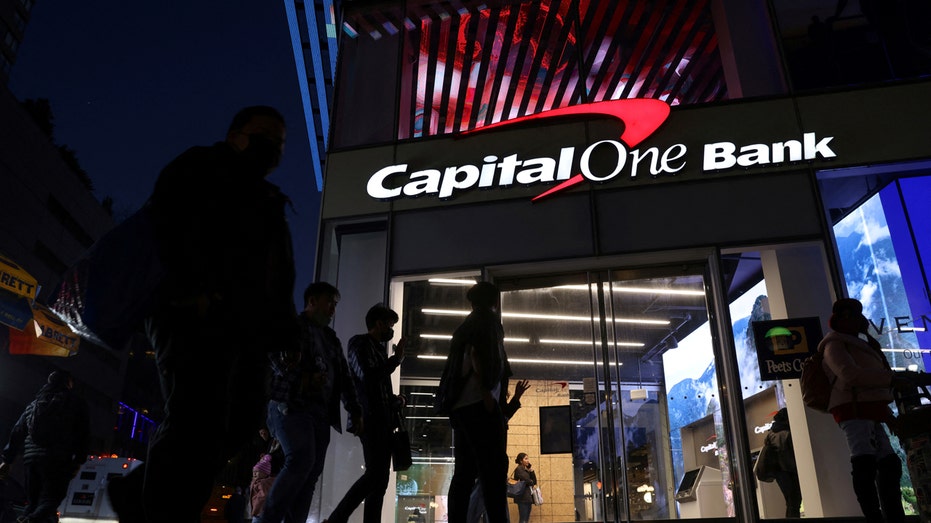Capital One, Discover merger will break Visa-Mastercard 'duopoly,' analysts say
$35.3B all-stock deal was announced Monday
Capital One Financial's $35.3 billion deal for Discover Financial would create new competition for payments behemoths Visa and Mastercard, potentially helping smoothen the path for regulatory approval, analysts said.
The all-stock deal announced on Monday would give Capital One access to Discover's network of payments processing and settlement services, allowing it to cut its reliance on Visa and Mastercard, which have come under fire for their fees.
While legal experts expect the deal - the biggest in the global credit card industry according to Dealogic - to face fierce antitrust and other regulatory scrutiny, it could take a slice out of Visa and Mastercard's market share.
CAPITAL ONE TO ACQUIRE DISCOVER FINANCIAL
Capital One CEO Richard Fairbank said on Tuesday the deal was "well-positioned for approval", and the lenders had kept regulators informed, although he did not elaborate on the details of the discussions.
The lenders will file formal paperwork with regulators in the next couple of months, he said.
"The path to approval is a key question mark," HSBC Global Research analyst Saul Martinez said. "The offset in regulators' minds could be the potential for more competition among networks."
Some lawmakers have accused Visa and Mastercard of a "duopoly," although both have denied the allegations.
Still, some influential community groups opposed the deal.
"It is very difficult to imagine how federal regulators could allow Capital One to buy Discover given the requirement that mergers benefit the public as well as insiders," Jesse Van Tol, CEO of Washington-based advocacy group National Community Reinvestment Coalition, said.

A Capital One Bank marquee is seen in New York City on Nov. 12, 2021. (REUTERS/Andrew Kelly/File Photo / Reuters Photos)
Number One Player
The combination of Capital One and Discover would create the biggest U.S. credit card issuer with around $250 billion in card balance and a market share of 22%, according to TD Cowen analysts.
"This is a rare and extremely valuable asset," Ian Lapey, portfolio manager at Gabelli Funds, which holds shares of Capital One told Reuters.
Visa shares fell 1.2%, while Mastercard, which has a bigger exposure to Capital One according to analysts, dropped nearly 3%.
"The acquisition is a negative headline for Mastercard and Visa, in our view," said J.P. Morgan analyst Tien-tsin Huang.
Capital One said shifting its card portfolio from the big two global payment processors to Discover's network would help the lender generate $1.2 billion in 2027.
Any transition, however, would likely be slow since both Visa and Mastercard renewed their partnerships with the company recently, Huang said.
"We have already spoken with Capital One about this news. Our takeaway is that this is a partnership that will continue for the long-term," a Mastercard spokesperson said.
Visa did not immediately respond to requests for comment.
"It's not unusual for companies to be both competitors and customers of one another. And we don't see this as an issue," Capital One's Fairbank said.
Shares of Discover rose 11.3% to $122.95, inching closer to the offer price of $139.86 after opening at their highest in nearly two years. The rally added more than $3 billion to Discover's market value. Capital One stock fell nearly 2%.
"Regulators are likely to pick carefully through this deal given that Capital One and Discover are two of the largest credit card companies in the United States," Susannah Streeter, head of money and markets at Hargreaves Lansdown, told Reuters.
CLICK HERE TO GET THE FOX NEWS APP
"However, given the vast savings in operational costs expected... Capital One believes complex regulatory hurdles are worth being navigated to deliver significant returns."




















